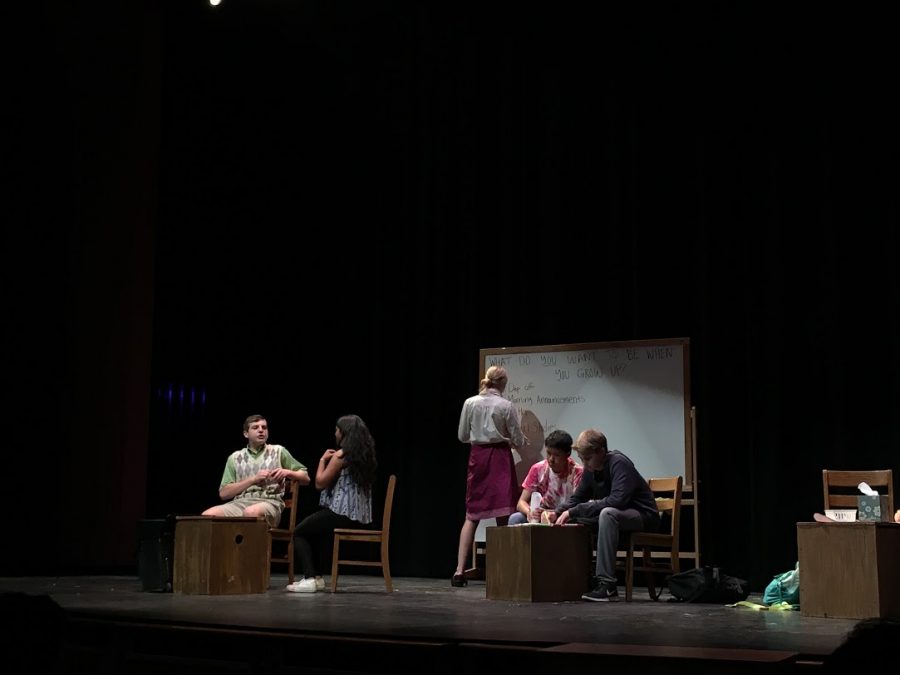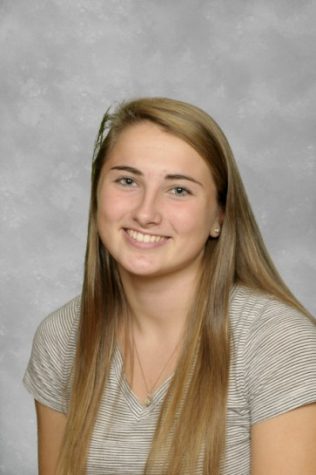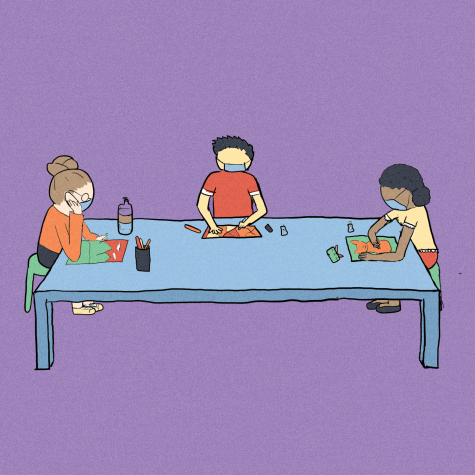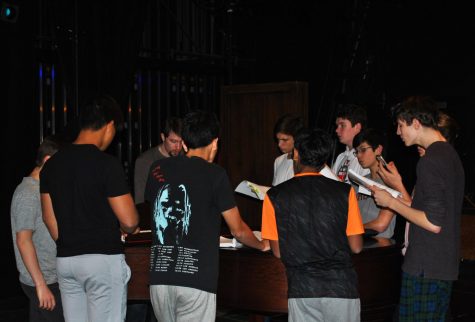One Act Play Festival Returns
Students perform in the play Detective Axal Atkinson and the Sixth Grade Thief.
The popular One Act Play Festival, referred to as One Acts, marks the end of spring term at Groton. On Saturday, May 27, students excitedly watched their friends shine in a series of short plays. One Acts is a tradition which started before Laurie Sales was the Theater Director. Plays were not student-written then, but rather, selected works by famous playwrights. It was a process that Laurie was not entirely in favor of because at the end of the performances, students received awards such as “best performance,” making the festival competitive as shows and actors were pitted against each other. Today, One Acts is a fun way for students who might otherwise not experience the theater to perform on stage.
Last Saturday’s festival consisted of eight one act plays. A one-act is substantially shorter than a regular mainstage production at Groton. Each one-act usually runs around 15 minutes, making for a two hour show in this year’s eight show installment. One act plays also have much smaller casts, averaging around four people per show. The cast of Cabaret, this year’s winter musical, in comparison had around 25 people. Gracey Mumford ’21 noted that “because it’s such a small and short scene it is less demanding and you can… bond with people you wouldn’t see or interact with otherwise.” Because of shorter shows, smaller casts, and flexible rehearsal times, One Acts allow students with many commitments outside of the theater the opportunity to participate.
An important distinction between One Acts and the seasonal mainstage shows is that One Acts is almost completely student run. They are a culmination of work in Laurie’s Playwriting class. The shows are written by students in winter term. Then, in the spring, student directors read and request different shows. Laurie assigns directors their one-act, and auditions take place.
The audition process is “very competitive,” according to Janice Zhai ’21. Out of approximately 50 people who auditioned for One Acts this year, 28 were cast in shows. During the audition process, students were randomly assigned scenes from various plays. Most students only read once at the auditions. The students from the Lower and Upper School had separate auditions to create a more comfortable environment for younger students.
When it comes to selecting the actors of the play, Laurie and the directors like to give priority to seniors who have never been on stage before.“Some people may not agree with it,” Laurie said, “But I think that seniors get priority. I feel like all students in Groton School deserve a chance to be in a piece before they graduate. If there is a senior that would, for example like to perform in One Acts, and a fourth former who’s been in One Acts for their entire time in this school, I would always choose the senior.”
Once actors are cast, the directors are given the responsibility of taking the text off the page and creating a staged show. JJ Cheng ’18, who wrote “Teens Wearing Jeans” featured in this year’s festival, said that, “During the spring, most of the responsibility for making the play into reality is on the director. I just sit in on some rehearsals, give input on how I envisioned the play when I wrote it. I usually give the director feedback on character development, nuances in dialogue, and other small things. Basically, once the play is handed over to the director, then I take a backseat role.”
In the past, it had been difficult to gain admission to watch the festival, because of the Blackbox’s minimal seating. Laurie noted that, “last year we had so many students come to see their friends perform in the play. We weren’t expecting this much of an audience.” Due to students and faculty unable to watch in previous years, Laurie decided that this year the plays would be performed on the main stage of the Campbell Performing Arts Center. The change in venue was much appreciated by students who no longer had to show up several hours early to try to get a seat.
The festival was a success, as student actors, directors, and playwrights were able to, in JJ’s words, “see [their] own imagination come to life.”






